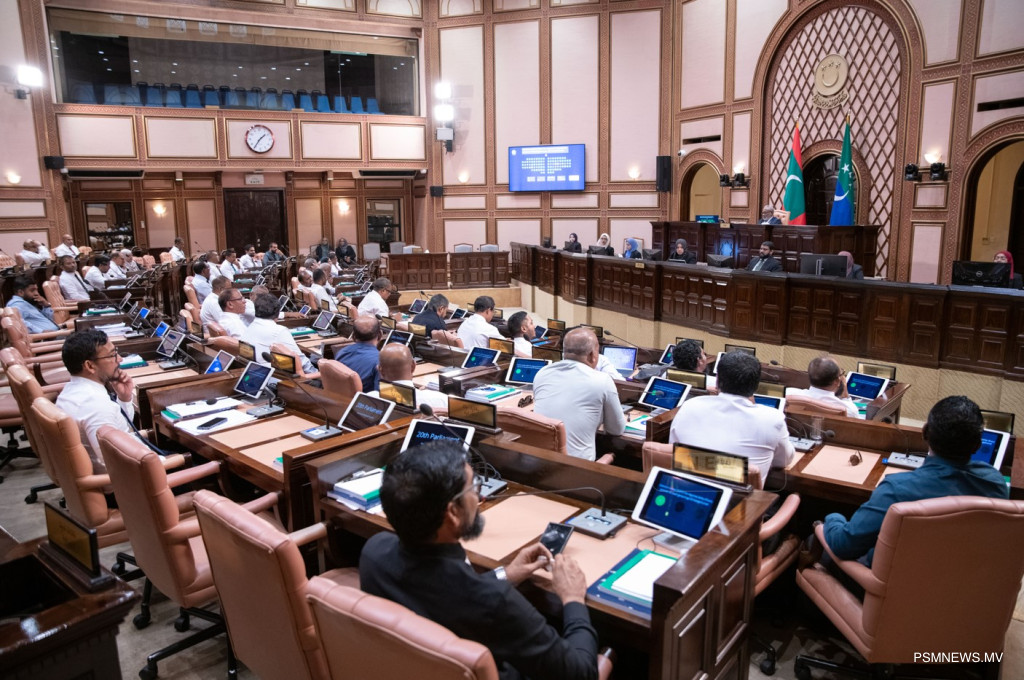Parliament Passes Maldives Media and Broadcasting Regulation Bill with Key Reforms to Safeguard Press Freedom

The Independent Institutions Committee of the Parliament has passed the Maldives Media and Broadcasting Regulation Bill, amending it to effectively address the concerns of journalists while introducing key reforms to safeguard press freedom.
The bill was initially introduced by Parliament Member Abdul Hannaan Aboobakuru. Several amendments were later proposed by the government following concerns raised by journalists. The amendments were submitted on behalf of the government by Parliament Member Abdulla Shareef.
Under parliamentary procedure, bills at the committee stage must be reviewed and passed by a vote of the committee members. Once approved, the committee report is submitted to the Counsel General, who assesses whether the bill conflicts with the Constitution or existing laws. The committee report is then finalised and passed based on the advice of the Counsel General.
The committee passed the bill on Monday and submitted its report to the Counsel General, who confirmed that the draft bill was consistent with the Constitution and other laws. Although no constitutional concerns were raised by the Counsel General, several recommendations were made, which were adopted by the committee before being approved by a majority of committee members.
The bill was subsequently passed in an extra-ordinary session of the Parliament held Tuesday, with 60 votes in its favour. Only one member voted against the bill.
Member of Parliament, Meekail Ahmed Nasym of the opposing Maldivian Democratic Party (MDP) proposed two amendments to the bill. However, the amendments could not be presented as the member was asked to leave the floor. Four amendments submitted by Member of Parliament Mohamed Mamdhooh were approved.
Among the key changes proposed by the government and approved were amendments to Articles 17, 19 and 20 which removed any role of the President in the appointment and removal of the President of the Commission. Article 18 was also revised to prevent commission members from belonging to a political party, expanding the earlier restriction that only barred members from holding office in a political party.
Article 41, which sets out standards for the disclosure of personal information, was amended to emphasise respect for the personal freedoms of individuals concerned.
The committee also deleted Article 67 of the bill, which empowers the Commission to take measures against individual journalists and media personnel, and Article 66(f), which empowers the Commission to temporarily suspend a media outlet’s registration as an administrative measure until a case is concluded.
The bill is intended to promote and develop press freedom in the Maldives, safeguarding against the spread of false information, and ensuring responsible exercise of constitutional rights by the media and journalists. The bill defines media only as registered media outlets, and therefore, no section other than registered media will be regulated under the bill.
President Dr Muizzu has consistently emphasised the importance of free media. Shortly after taking office, the President met with media representatives to discuss their concerns and explore solutions.
As part of supporting the media, the government has approved allocating a certain percentage of the state budget for the media. The government has also initiated the development of a media village to address the space constraints for journalists.
